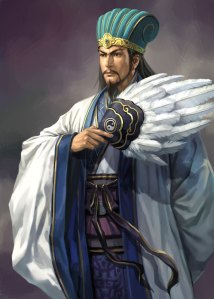Humans are useless at assessing probabilities. But against the odds, Dylan Evanshas tracked down the handful of people who rate as geniuses on the intelligence scale he calls risk quotient.

The Monsieur’s Brief- Become a top notch Risk Taker like Zhuge Liang. Three Kingdom’s Liu Bei’s military strategist famous for his “empty city” tactic amongst others.
Most people probably haven’t heard of risk intelligence. What is it?
It is the ability to estimate probabilities accurately, it’s about having the right amount of certainty to make educated guesses. That’s the simple definition.
Are most of us bad at this?
Yes. The psychologists Daniel Kahneman and Amos Tversky laid the ground for a lot of what we know about judgment and decision-making.
Where were those pockets of genius?
I found them among horse-race handicappers, bridge players, weather forecasters, and expert gamblers. You can only be an expert gambler where there is room for skill, like blackjack, poker, or sports betting.
What else did you find about expert gamblers?
They’re not Rain Man geniuses, they don’t necessarily have mathematics degrees, and there is no correlation with education or IQ. But they are all comfortable with numbers, and their risk intelligence is substantially higher than average.
How do you quantify risk intelligence?
I set up an online test to measure risk quotient or RQ. It consists of 50 statements, some true, some false, and you have to estimate the likelihood of a statement being true. The average RQ is not high. There are two ways you can have a low RQ. One is by being overconfident, the other is by being underconfident.
How can I become a top notch risk taker?
One way is by being aware of different cognitive biases. Another is to play a personal prediction game. Bet against yourself and estimate probabilities of anything: whether your partner will get home before six, or whether it is going to rain, and keep track of them. Expert gamblers are constantly on the lookout for overconfidence, biases and so on. It is hard work, but it means they know themselves pretty well and they don’t have illusions. They know their weaknesses. [Read More at The New Scientist via Slate]
Posted on May 24, 2012
0